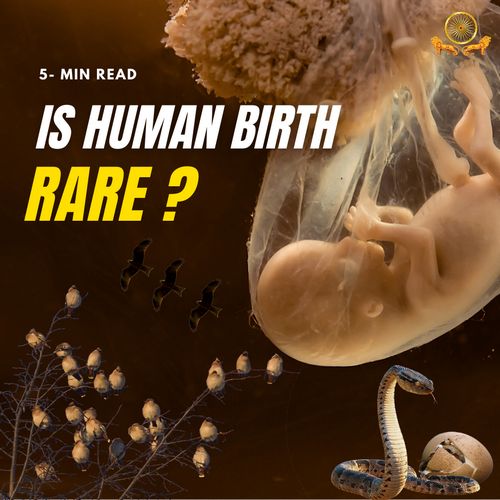This article is based on this short sermon by Ven. Kiribathgoda Gnanananda Thero.

We have an ability to develop wholesome deeds within us. If we do not follow Dhamma in this life, that ability to develop wholesome deeds will fade away. If we do not develop this ability, it will disappear.
Here is an example that you can think about. Where meritorious deeds were done in a past life, it may bear positive results in many future lifetimes. Some deeds will even bear results of being reborn as a human for up to seven consecutive lifetimes.
Now we all live in this human world. For us to be reborn as a human, there must have been meritorious deeds done from our past life that have helped us.
Therefore, one should never discredit the importance of merits. Clearly, we have been reborn as a human being due to previous merit. Some people will say: “There is no need to collect merits, but to only do wholesome deeds is enough.”
These people will collect vast amounts of demerits by neglecting meritorious deeds. We have been reborn in the human world in this life. Let’s say that we were born in the human world before this lifetime as well.
Let us assume that due to meritorious deeds that have been performed in the past, we had been reborn in the human world for six times in a row and this life is the seventh consecutive birth as a human. That means this will be the last human birth from the result of those previous meritorious deeds.
If all the previous merits have been used up in this birth and new merits were not accumulated, then where would we end up in the next life? We would end up in one of the four bad destinations.
In this case, when would we have the opportunity to come back to the human world?
When we are reborn in a lower world, the ability to collect merits is impossible. Think about this very facts carefully! When most people die, their merits have come to an end and they have not collected any new merits for future birth. There are not enough merits to be re-born as a human.
That person will end up as a ghost, an animal, a titan, or in hell as a hell being. In those worlds, he will not have any opportunity to collect any merits. Will he have the opportunity to come back to the human world again?
This is the reason why the Supreme Buddha preached that it is not easy to be reborn as a human after falling into a bad destination. The Buddha taught about a one-eyed tortoise that lived in the bottom of the great ocean and came up to the water surface only once in every 100 years. The probability of that tortoise rising to the surface and looking up at the sky through a tiny hole from a piece of floating wood is more likely to happen than being born as a human.
What does this mean? It means that we are dying and leaving the human world with no more merit left to carry forward to the next birth. Just look at this human world! Are humans collecting merits by day and night?
People continually perform unwholesome deeds by body, speech, mind and collect demerits. No new merits are left for future birth. That is the danger! The past merits to be born as a human in this life has ripen and will come to an end. Sense faculties, whether used or unused, will also not be left (for future births). Spiritual faculties have the same nature. If not used. they also fade away and disappear.
In the beginning, I mentioned about the ghost who had a long body with a pig’s face and a mouth that was filled with worms. If that ghostly being did not commit bad deeds in his past life, he might have got the opportunity to achieve some kind of spiritual attainments in that life. Instead, he fell into the hell and ghost world. This is the sad reality.
Even though we live together as humans, we are travelling individually on this journey. At some point in this long journey of saṁsāra, we will meet each other again.
One time, King Milindu questioned Arahant Nāgasena Bhante about the meeting between the Supreme Buddha and Devadatta. The king asked if the meeting between the Bodhisatta and Devadatta happened frequently in this journey of saṁsāra. Arahant Nāgasena Bhante said it did not happen very often. They met only once in a while. For the rest of his lifetimes, the Bodhisatta was fulfilling the pāramī to achieve the Buddhahood.
From this, we can understand how long the journey of saṁsāra is.
The Supreme Buddha could see with wisdom that even a person who possessed strong spiritual faculties to understand the Dhamma had the potential to lose them, without achieving the Path.
A similar case happened to the King Ajātasattu. Though his spiritual faculties to become a stream entrant were mature, due to the association of a bad friend, he lost the opportunity to understand the Dhamma.
Likewise, there are many people who lose the opportunity to collect merits due to wrong views. They say: “We don’t need merits; we will only do wholesome deeds.” In the end, these people have collected only demerits, with little else achieved.
Thank you for this dhamma talk!